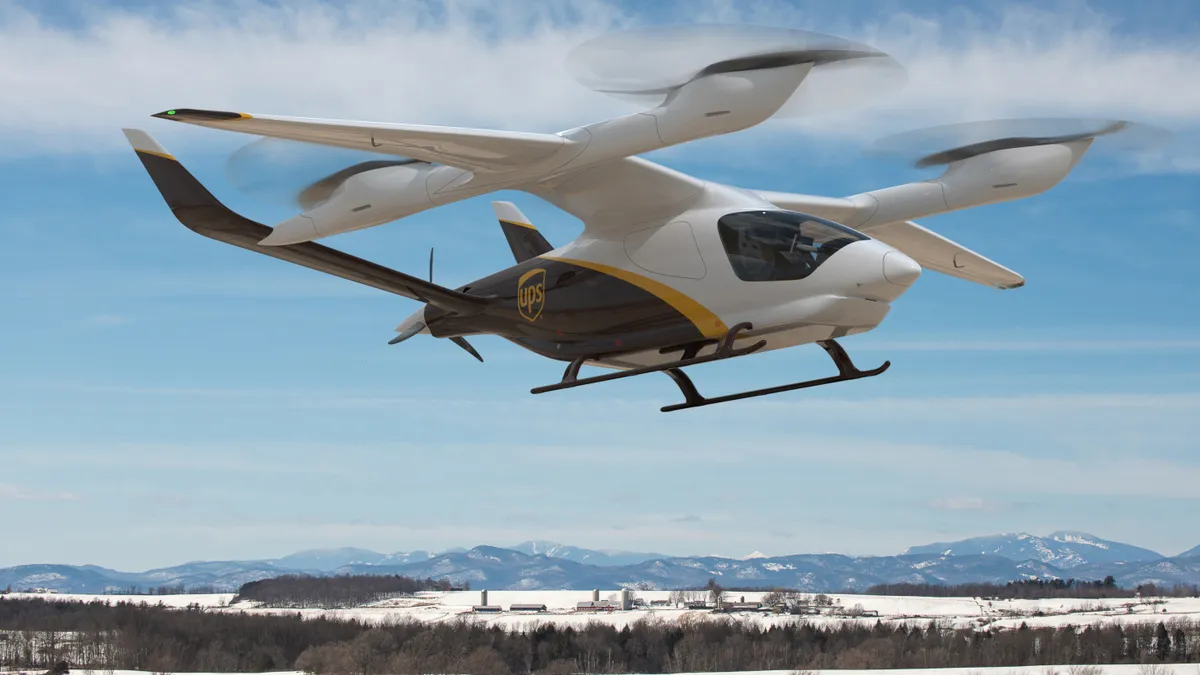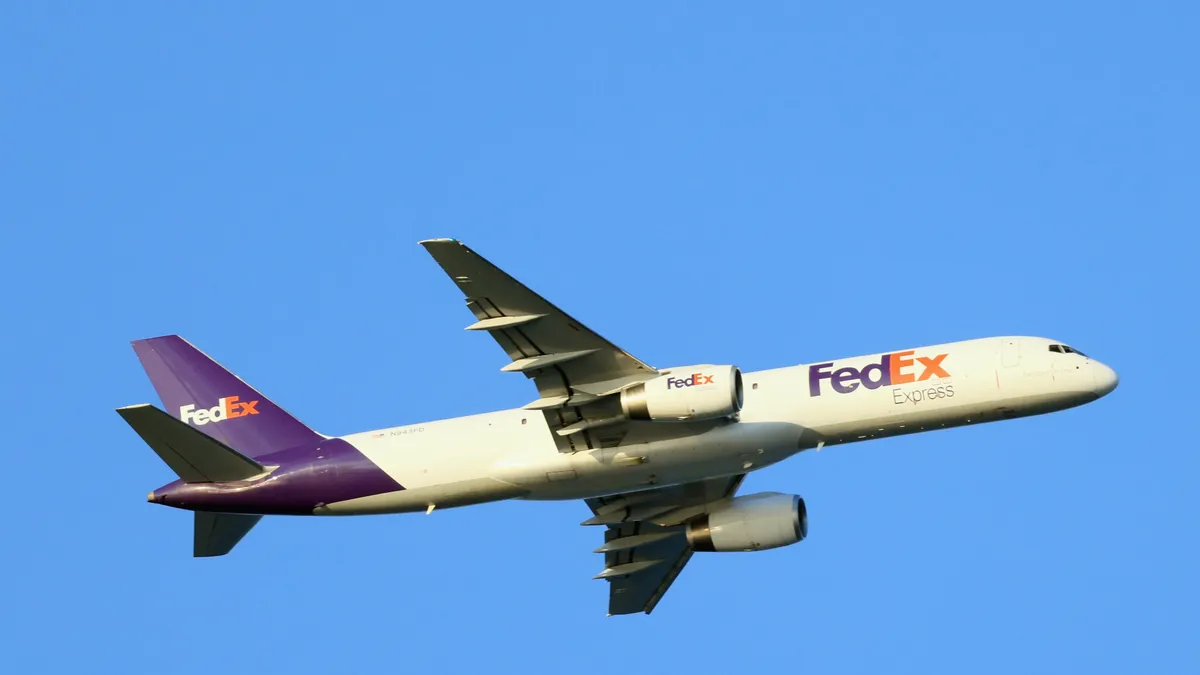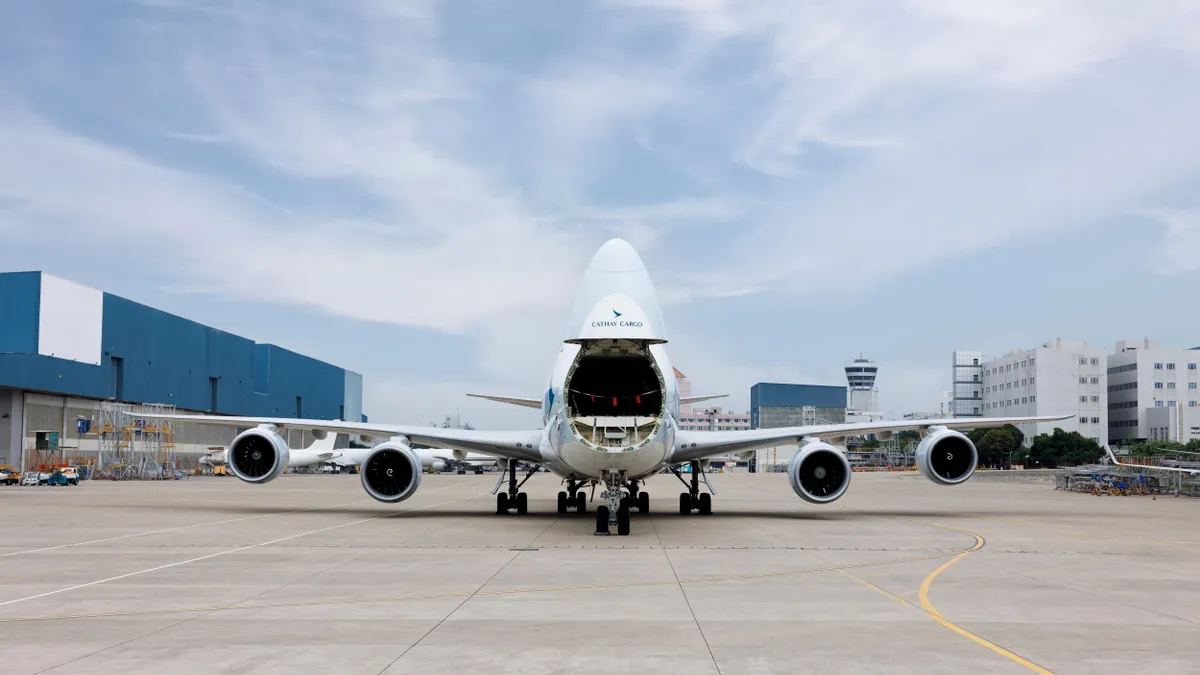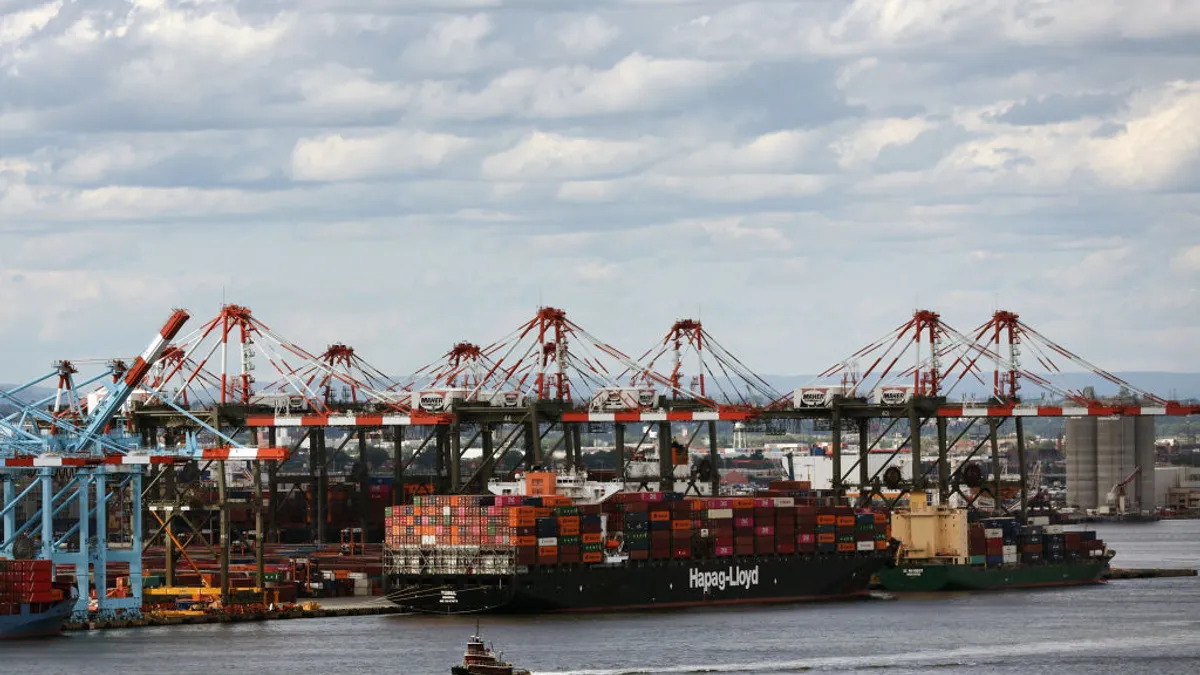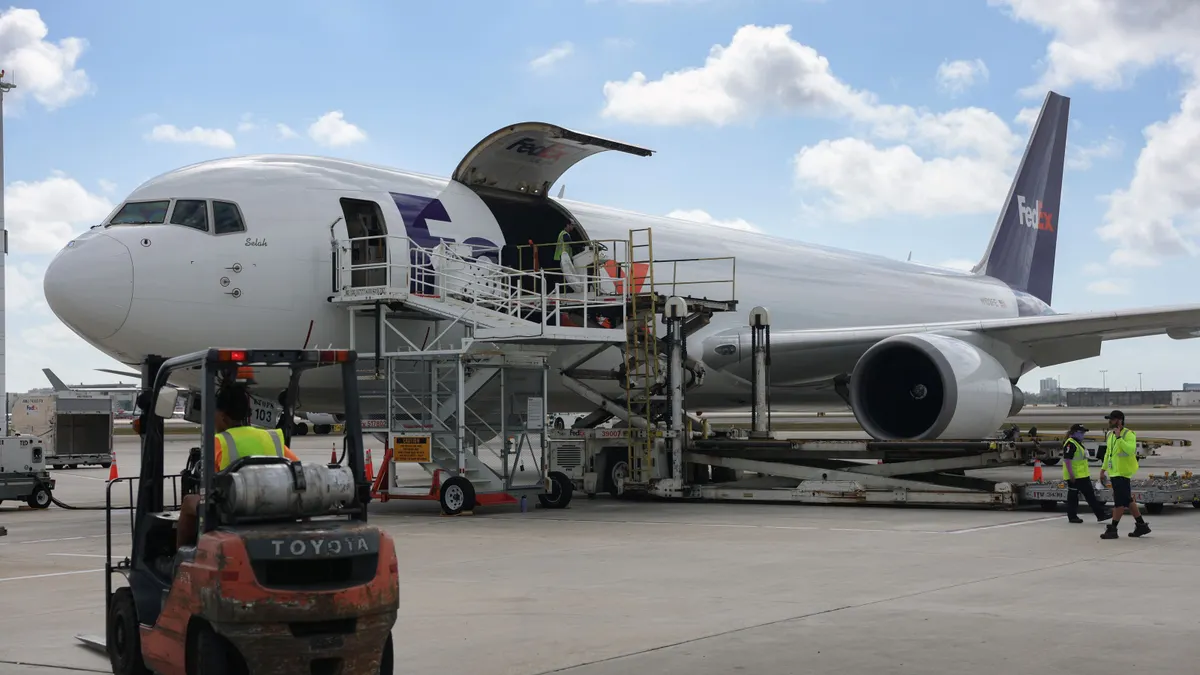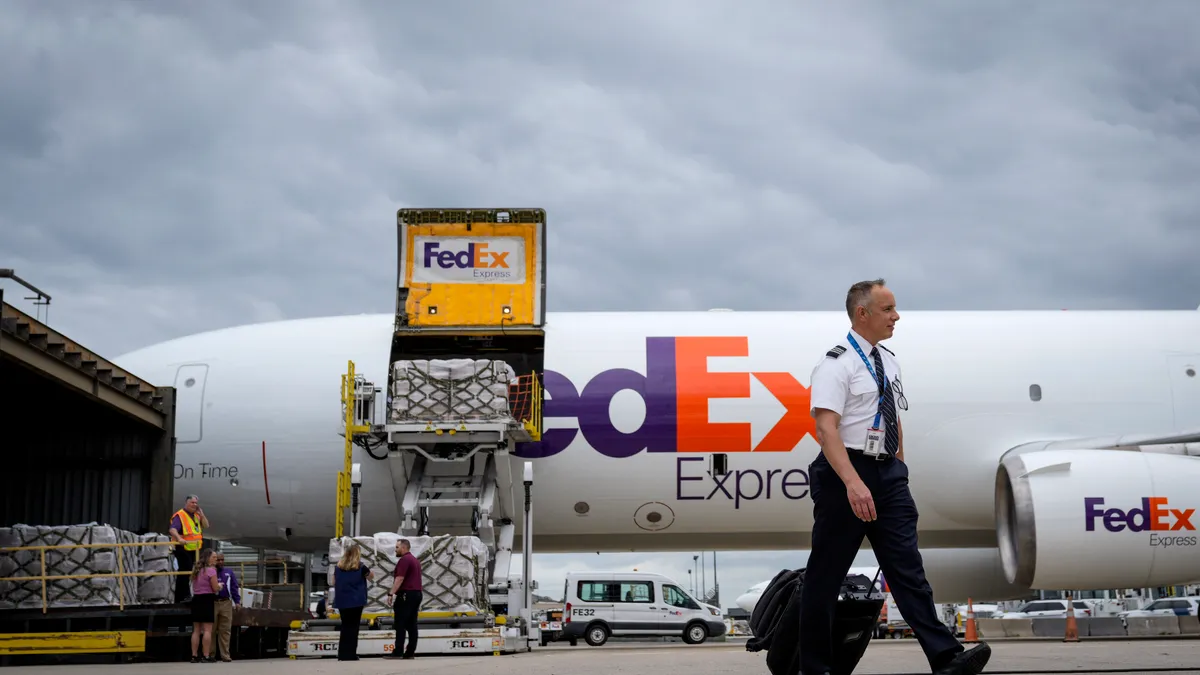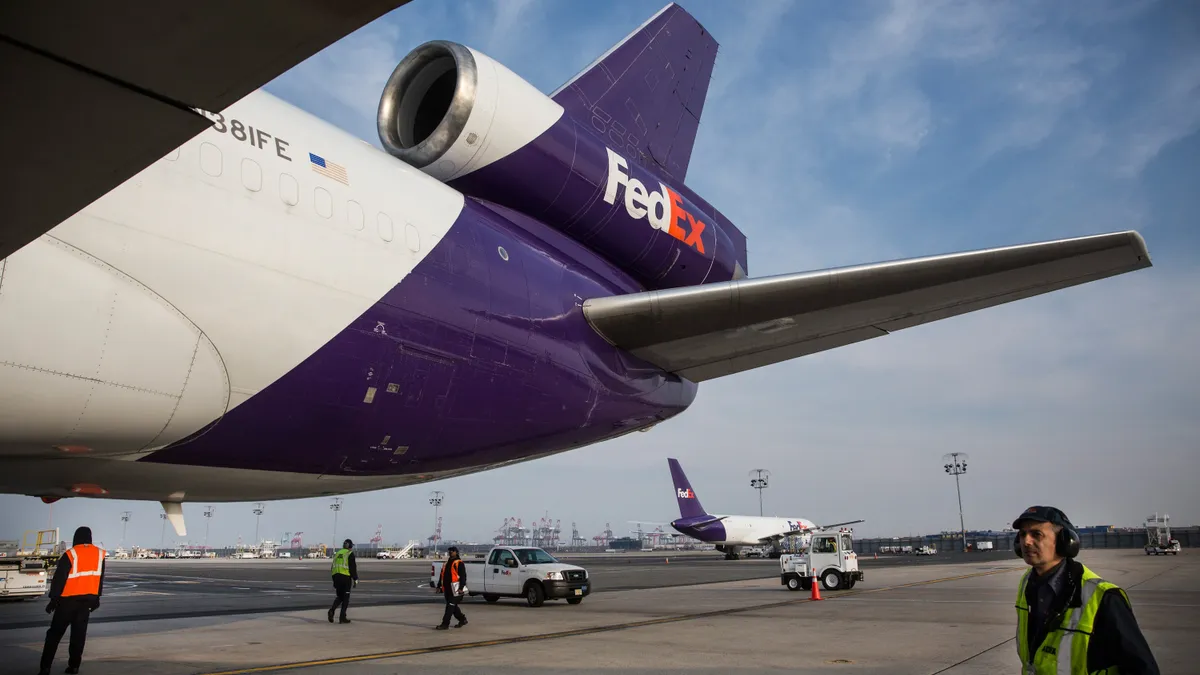UPS' latest Flight Forward investment is not a bird; it's not a plane; it's not exactly a drone or a helicopter.
It's an electric vertical takeoff and landing aircraft — an eVTOL, which operates like a helicopter, eliminating the need for a runway.
Last week, the company announced plans to buy 10 eVTOLs from Beta Technologies, slated to begin arriving in 2024. UPS could then purchase up to 150 of them.
The eVTOLs would augment the company's small feeder aircraft, which primarily carry time-sensitive deliveries for UPS Next Day Air, UPS Second Day Air and UPS Premier, a spokesperson said in an email.
"By utilizing vertical takeoffs and landings, we can turn relatively small spaces at existing UPS facilities into a micro air feeder network without the noise or operating emissions of traditional aircraft," Beta founder and CEO Kyle Clark said in the press release.
According to UPS, the electric aircraft have a 1,400-pound cargo capacity, a 250-mile range, a cruising speed of up to 170 mph, can charge in less than one hour and are designed to, someday, operate autonomously.
It's a concept that seems part of a futuristic logistics environment, but one that could occur before the end of the decade.
"As humans, we have the tendency to overestimate what we can do in two years and underestimate what we can do in 10," said Robin Riedel, a partner at McKinsey.
By his account, Beta and other eVTOL OEMs aim to produce commercial-ready aircraft in the next four or five years. Then, by 2027 or 2028, the industry will scale — and shake up supply chains.
Will eVTOLs disrupt existing flows of goods? Will they prompt shippers to keep more local inventory? Once the aircraft become more widely adopted, will there be less large-scale, overland shipping? Will it cut players out of the supply chain?
"I think the answer is, for a number of these things, is 'yes,'" said Riedel.
UPS said the eVTOLs would take off from and land at UPS facilities, which is also where the Beta recharging systems would be located. That system can be integrating with the charging infrastructure for UPS electric ground vehicles, according to the press release.
The company said it currently operates more than 12,000 alterative-fuel and advanced-technology vehicles, and it has committed to purchasing up to 10,000 Arrival electric vehicles. UPS has pursued greener logistics technology for years, particularly for last-mile operations.
"The eVTOLs will initially be used for the middle mile, transporting time-sensitive packages between UPS sortation facilities," the spokesperson wrote. "The benefits include reduced time in transit through fewer touch points and reduced transportation time between UPS's facilities."
Taking airports out of the equation streamlines the logistics. That enables the carrier to go straight from a distribution center to a sortation center, Riedel said as an example. Skipping the infrastructure middle man will speed up the supply chain, bolstering carriers' same-day and next-day delivery capabilities, Riedel projected.
That newfound speed and flexibility could also lead shippers to restructure inventory to lower levels. "One warehouse could cover more area and you therefore could consolidate inventory and lower it," Riedel said in a followup email.
UPS Flight Forward handles the company's drone endeavors. In January, it teamed up with Verizon and its subsidiary, Skyward, to deliver retail products via drone and examine the use of 5G networks.
The company said UPS Flight Forward received the first full Part 135 Standard certification to operate a drone airline, enabling it to fly payloads of up to 7,500 pounds, with or without a pilot. The Beta eVTOLs will have a pilot onboard to start, but they are designed to be autonomous "as technologies and regulations are established," UPS said.
Competitors are also innovating in this space. Amazon's Prime Air arm is dedicated to drone delivery, and it aims to deliver packages in 30 minutes or less. FedEx said, in 2019, it became the first in the nation to complete a scheduled commercial residential delivery to a home via drone in Virginia. And, according to a news report, the company is testing single-pilot cargo operations in a large fixed-wing aircraft as part of a broader autonomy project by OEM Sikorsky.
The convergence of autonomy and electrification is set to change supply chains, Riedel said. "They're creating new use cases, and they're creating lower costs for your transportation of goods. And so together, that will disrupt the way we think about logistics today."


